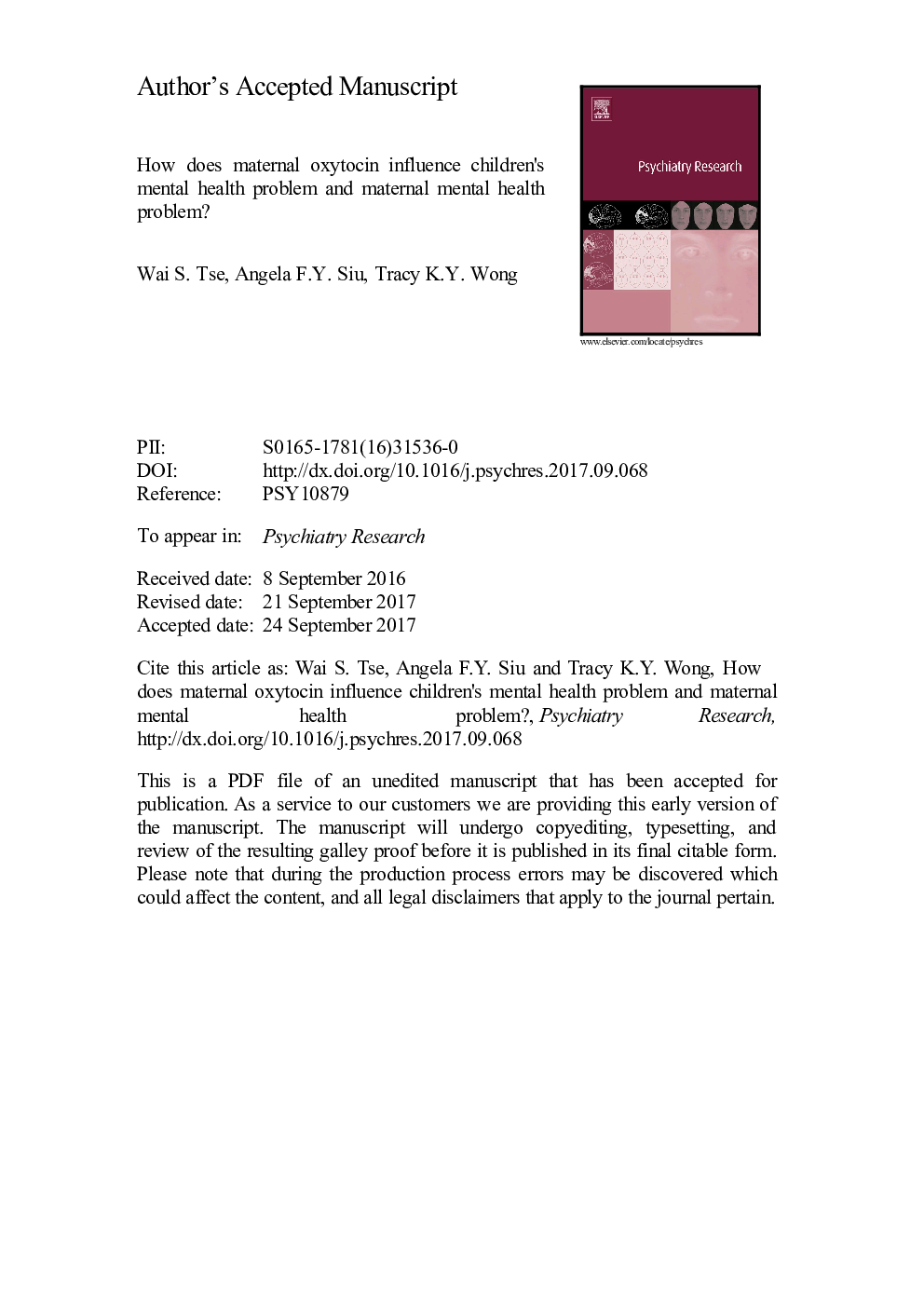| Article ID | Journal | Published Year | Pages | File Type |
|---|---|---|---|---|
| 4933254 | Psychiatry Research | 2017 | 23 Pages |
Abstract
This study aims to explore the interrelationship among maternal oxytocin (OT) responsiveness, maternal mental health, maternal parenting behavior, and mental health of children under a free-play interaction. 61 mother-child dyads were recruited for the study. Maternal mental health problem and parenting self-efficacy were measured using self-reported questionnaires. The mental health problems of children were also evaluated using a mother-reported questionnaire. Furthermore, salivary OT was collected before and after a standardized 10Â min free-play interaction. Parenting behaviors, including eye gaze and touch, were measured during the free-play interaction. Maternal OT responsiveness was significantly associated with less maternal mental health problem, touch frequency, and mental health problem of children but not with parenting self-efficacy. In the multivariate linear regression analysis that considers maternal OT responsiveness and maternal and children's mental health problems, maternal OT responsiveness was not associated with the mental health problems of children. This result suggested that maternal mental health problem played a mediational role between maternal OT responsiveness and the mental health problem of children. Results supported the assertion that maternal OT responsiveness contributed to the increased risk of maternal mental health problems and, subsequently, the risk of mental health problems of their children.
Related Topics
Life Sciences
Neuroscience
Biological Psychiatry
Authors
Wai S. Tse, Angela F.Y. Siu, Tracy K.Y. Wong,
